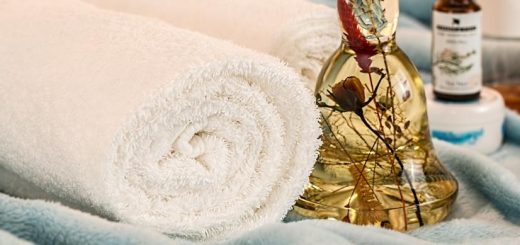The Essentials of Daily Body Care: Crafting a Balanced Skincare and Maintenance Routine
Understanding Your Skin Type
Before diving into a skincare routine, it’s crucial to understand your skin type. This foundational knowledge will help you choose products and techniques that best suit your needs. Here are the primary skin types and their characteristics:
- Normal Skin: Balanced with no excess oil or dryness.
- Dry Skin: Often feels tight, rough, or flaky.
- Oily Skin: Prone to shine and excess sebum production.
- Combination Skin: A mix of dry and oily areas, often oily in the T-zone (forehead, nose, chin).
- Sensitive Skin: Easily irritated and prone to redness or reactions.
Building Your Skincare Routine
An effective skincare routine is built around cleansing, moisturizing, and protection. Here’s a step-by-step guide to help you craft a regimen that works for you.
1. Cleansing
Cleansing is the first step in any skincare routine. It removes dirt, oil, and impurities from the skin’s surface, preparing it for the next steps. Depending on your skin type, you should choose a cleanser that matches your needs:
- For Dry Skin: Opt for a creamy, hydrating cleanser that won’t strip your skin of its natural oils.
- For Oily Skin: Look for a foaming or gel-based cleanser that helps control excess sebum.
- For Combination Skin: A balanced cleanser that targets both dry and oily areas can work well.
- For Sensitive Skin: Use a gentle, fragrance-free cleanser to avoid irritation.
Cleanse your face twice daily—once in the morning to remove any overnight buildup, and once in the evening to cleanse away the day’s grime.
2. Exfoliating
Exfoliation helps remove dead skin cells, revealing a brighter and smoother complexion. However, it’s essential to exfoliate correctly to avoid overdoing it:
- Physical Exfoliants: These include scrubs with grains or beads. Use them sparingly to avoid damaging the skin’s surface.
- Chemical Exfoliants: Products containing alpha-hydroxy acids (AHAs) or beta-hydroxy acids (BHAs) can be more effective and gentler on the skin.
Exfoliate 1-3 times a week depending on your skin type and the product’s intensity. Over-exfoliation can lead to irritation and sensitivity.
3. Moisturizing
Moisturizing helps maintain the skin’s natural barrier and prevent dryness. Your choice of moisturizer should align with your skin type:
- For Dry Skin: Rich, creamy moisturizers with ingredients like hyaluronic acid or shea butter are ideal.
- For Oily Skin: Lightweight, oil-free moisturizers or gels work best.
- For Combination Skin: A balanced, hydrating formula that addresses both dry and oily areas is beneficial.
- For Sensitive Skin: Look for hypoallergenic, fragrance-free moisturizers.
Apply moisturizer twice daily to keep your skin hydrated and plump.
4. Sun Protection
Sun protection is crucial to prevent premature aging and protect against harmful UV rays. Use a broad-spectrum sunscreen with at least SPF 30 every day, even on cloudy days. Apply it as the final step in your morning routine, and reapply it every two hours if you’re spending extended time outdoors.
Beyond Skincare: Additional Body Care Tips
A well-rounded body care routine goes beyond skincare. Here are some additional tips to help you maintain overall body health:
1. Hydration
Drinking plenty of water is essential for maintaining skin hydration and overall health. Aim for at least 8 glasses a day, and adjust based on your activity level and climate.
2. Nutrition
A balanced diet rich in fruits, vegetables, lean proteins, and healthy fats supports healthy skin. Foods high in antioxidants, vitamins A, C, and E, and omega-3 fatty acids are particularly beneficial.
3. Exercise
Regular exercise promotes good circulation, which helps deliver nutrients to the skin and flush out toxins. Aim for at least 30 minutes of moderate exercise most days of the week.
4. Sleep
Adequate sleep is crucial for skin repair and overall well-being. Strive for 7-9 hours of quality sleep per night to help your skin look and feel its best.
5. Stress Management
Chronic stress can negatively impact your skin and overall health. Incorporate stress-relief techniques such as meditation, yoga, or deep-breathing exercises into your daily routine.
Customizing Your Routine
No single routine fits everyone perfectly. Customize your daily body care routine based on your individual needs and preferences. Pay attention to how your skin responds to different products and make adjustments as needed.
Conclusion
Establishing a daily body care routine is an investment in your health and well-being. By understanding your skin type and incorporating essential skincare practices like cleansing, exfoliating, moisturizing, and sun protection, you set the foundation for a healthy complexion. Complement your skincare routine with good hydration, nutrition, exercise, sleep, and stress management for optimal results. Remember, consistency is key, and with time and care, you’ll achieve a balanced and effective body care routine that keeps you looking and feeling your best.


















